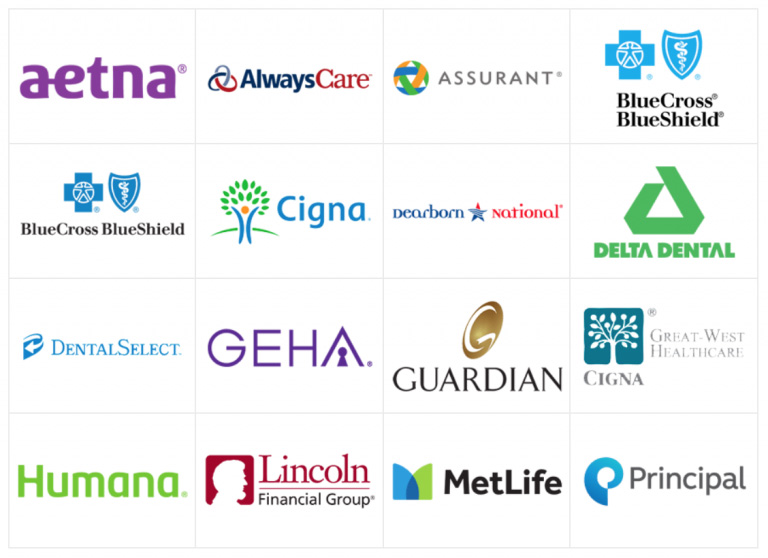After Tooth Extractions
There are a number of reasons that your dentist might recommend a tooth extraction. Some dental patients suffer from tooth decay; others need to remove teeth hindering orthodontic treatment, whereas various patients simply need wisdom teeth removal. While a tooth extraction can be a serious dental procedure, aftercare is just as critical as the procedure itself. As the dental patient, it is important to understand that pain and the risk of infection can be lessened with proper care.
Care immediately following surgery:
- Keep pressure on the gauze pad that your doctor placed over the surgical area by gently biting down. Dampen the gauze sponge with water if it begins to dry out. Try to maintain constant pressure in intervals of 45-60 minutes, repeating as often as needed, or until bleeding lessens. Change the gauze as needed.
- Keep your head elevated and try to lower your activity level as much as possible.
- 48 hours after surgery, rinse mouth with warm salt water every 1-2 hours. Avoid using any mouthwash containing alcohol as it can irritate the wound.
- Keep your mouth clean by brushing areas around the surgical site, but be sure to avoid sutures. Touching the wounded area in any fashion should be prevented.
- Use ice packs to control swelling by placing them on facial areas near extraction.
- Take all prescribed medications accordingly. If any itching or swelling occurs, contact the practice immediately, or go to the nearest emergency room.
- Try to eat softer foods, preferably high in protein.
- Keep your body hydrated by drinking plenty of fluids, but do not drink through a straw for the next 5-7 days.
- If you are a regular tobacco user refrain from smoking for the next 3-4 days as smoking increases your chances of getting a dry socket as well as an infection.
After your tooth has been extracted, healing will take some time. Within 3 to 14 days, your sutures should fall out or dissolve. For sutures that are non-resorbable, your doctor will schedule a follow-up appointment to remove the stitches for you. Your tooth’s empty socket will gradually fill in with bone over time and smooth over with adjacent tissues.
Possible complications after a tooth extraction
Bleeding – Bleeding after a tooth extraction is entirely normal. A pinkish tinted saliva and subtle oozing is fairly common during the first 36 hours. If bleeding gets excessive, control it by using dampened gauze pads and biting down to keep pressure on the area. As an alternative to gauze pads, a moistened tea bag can be used, as the tannic acid helps blood vessels contract. Apply pressure to the gauze or tea bag by gently biting down for 30 minutes. Please remember that raised tempers, sitting upright, and exercise can all increase blood flow to the head, which can cause excess bleeding. Try to avoid these as much as possible. If your bleeding does not reduce after 48 hours, please call the practice.
Bone sequestra (dead tooth fragments) – Some patients have small sharp tooth fragments that were unable to be completely removed during surgery. During the recovery period, these dead bone fragments, or bone sequestra, slowly work themselves through the gums as a natural healing process. This can be a little painful until the sequestra are removed so please call our practice immediately if you notice any sharp fragments poking through the surgery site.
Dry socket – In the days that follow your tooth extraction, pain should gradually subside. Rarely, patients report that pain increases to a throbbing unbearable pain that shoots up towards the ear. Often this is a case of dry socket. Dry socket occurs when the blood clot becomes irritated and ousted before healing is complete. Food and debris can then get into the socket causing irritation. Tobacco users and women taking oral contraceptives are at a higher risk of getting dry socket. Dry socket is not an infection but does require a visit to our office. If you think you may be suffering from dry socket, please contact the practice immediately.
Lightheadedness – Because you may have been fasting prior to surgery, your blood sugar levels may be lower than normal. Until your body has had the chance to catch up and process some sugars, you should remember to stand up slowly when getting up from a relaxed position. For somewhat immediate relief, try eating something soft and sugary, stay in a relaxed position, and reduce the elevation of your head.
Numbness – Many patients report still feeling numb hours after their tooth extraction procedure. An extended lack of feeling around the mouth is normal and can last 10-12 hours after surgery.
Swelling – Swelling should subside almost entirely within 10 days after surgery. Immediately following your tooth extraction, apply an ice pack to the facial areas near the extraction. Continue using the ice in 15 minute intervals for the first 36 hours. After 36 hours, ice will no longer be beneficial in reducing swelling and moist heat should be used instead. To decrease swelling, apply a warm damp cloth to the sides of your face.
Trismus (difficulty opening and closing mouth) – If you experience a sore jaw and difficulty chewing or swallowing, do not be alarmed. Occasionally patients’ chewing muscles and jaw joints remain sore 3-5 days after surgery. This soreness can also make it difficult to open and close your mouth. Soreness should eventually subside.
If you have any worries, or are experiencing any complications not mentioned, please contact our practice immediately so that we may address your concerns.
Meet Your Award-Winning Dentist

Dr. Harpreet Dhillon
Dr. Dhillon has been practicing dentistry in the state of Michigan since she graduated from University of Michigan School of Dentistry in 2011. She is board certified and licensed through the state of Michigan and an active member of American Dental Association, Michigan Dental association and is a part of the Macomb Dental Society.
Dr. Dhillon is very passionate passionate about dentistry and takes multiple Continuing Education courses every year to keep up and incorporate new technology and equipment into her practice. She is a member of the ADA, MDA and Macomb Dental Society.
Dr. Dhillon is a an avid animal lover and spends most of her free time with her Siberian Husky Saviour. They both enjoy hiking and long walks together. She also supports the Hairy Houdini Siberian Husky Rescue and believes in helping animals in need.
MOST INSURANCES WELCOME AND MAXIMIZED!
NEW PATIENT SPECIALS & FINANCING OPTIONS AVAILABLE.
Contact us to schedule an appointment today.
We Take Your Dental Insurance
We’ll make the process of paying for your dental care as simple as possible! Our office accepts a wide variety of insurance plans, and we’re always happy to file your claim for you so that you can be sure to receive the maximum benefits available to you. Dhillon Dental Care is in network with BlueCross BlueShield, Delta Dental, Metlife, Cigna, United, and more! Call us today to find out how we can maximize your insurance plan!

The Proof is in Our Patients
Very gentle and she knows whats shes doing!
Finally I am not afraid of the dentist anymore!"
Specials & Offers
Ask Us About FASTBRACES
Dr. Dhillon
A Proud FASTBRACES Provider
Flexible Hours for Your Convenience
Monday – Friday
Dental Implant Consultation
Free
Call Today to Schedule!
